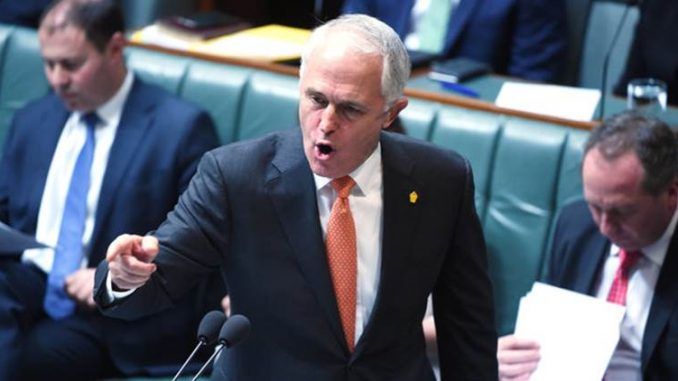
The Australian government has announced mandatory prison sentences of 20 years for whistleblowers who disclose classified information to the public.
The new law could see government and intelligence officials – and even journalists – face up to 20 years behind bars under new Orwellian legislation introduced by Malcolm Turnbull’s government.
Australian government and intelligence whistleblowers — and potentially even journalists — may face up to 20 years in jail for disclosing classified information, under the most sweeping changes to the country’s secrecy laws since they were introduced.

BYPASS THE CENSORS
Sign up to get unfiltered news delivered straight to your inbox.
You can unsubscribe any time. By subscribing you agree to our Terms of Use
Techdirt.com reports: BuzzFeed reports the legislation will be extremely broad:
The new laws will apply to anyone, not just government officials. They could easily apply to journalists and organisations like WikiLeaks that “communicate” or “deal” with information, instead of just government officials. They will also close a longstanding gap around contractors working on behalf of government agencies, who will also be subject to the new offences.
The good news is:
Journalists will have a defence available to them if publication of information is considered to be in the public interest and is “in the person’s capacity as a journalist engaged in fair and accurate reporting”.
But the bad news is the onus will be on journalists to show that they satisfy those conditions — likely to be expensive and maybe even impossible. Despite that issue, it seems doubtful that the new law will have much impact on leaking. After all, most whistleblowers know and accept that they are taking a risk when they release sensitive material, but have already decided it is worth it. Manning and Snowden were not deterred by the threat of extremely serious penalties, and there will always be people brave enough to follow in their footsteps, whatever the consequences.
As far as news organizations are concerned, while it is true that Australian titles may think twice before publishing leaked government documents, there are plenty of other outlets around the world that won’t. Even if other newspapers are reluctant to risk the wrath of the Australian government — perhaps because they have offices and journalists in the country that would be vulnerable to retaliation — it is easy to set up a dedicated site for the leaks, and then use social media to spread the word. That’s essentially what WikiLeaks does, which is unlikely to take any notice of the new law either.
If the Australian government — or indeed any government — wants to reduce leaks it should place as much information as possible in the public domain, and seek to protect only the extremely sensitive stuff. Trying to enforce excessive and unnecessary secrecy with manifestly vindictive punishments simply undermines people’s respect for the whole system, and probably provokes even more whistleblowers to leak.

